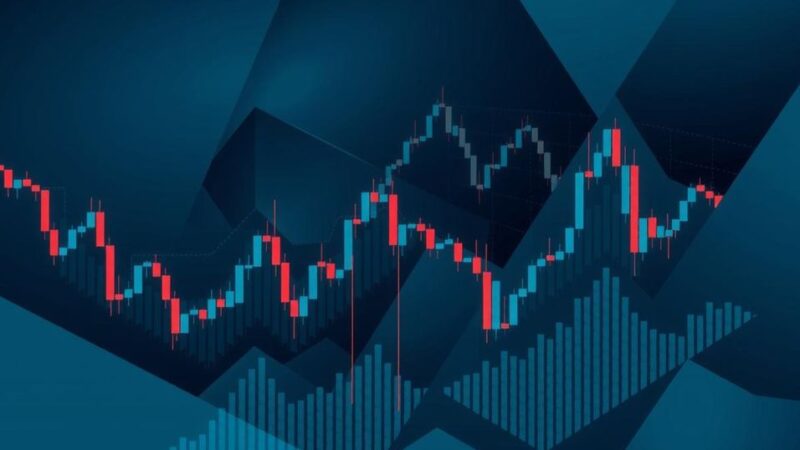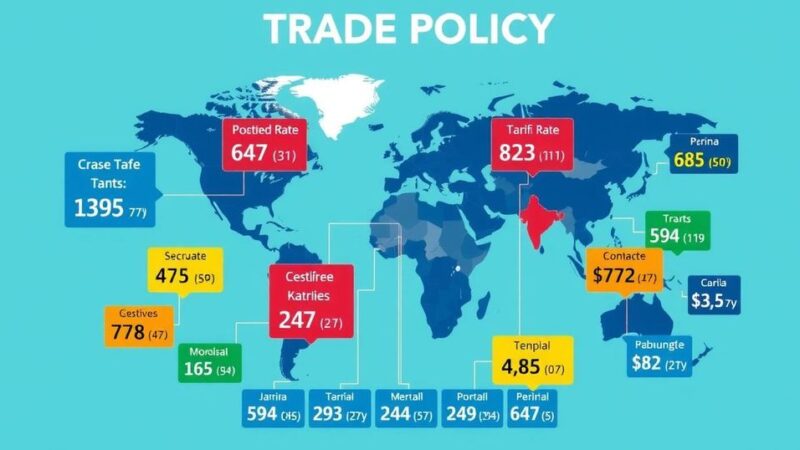AySA’s bond prices have surged following President Milei’s deregulation efforts, resulting in significant returns for investors. The company is restructuring and exploring privatization options as it seeks full operational funding for the first time in years. Future bond performance hinges on progress in privatization amidst political uncertainties.
The debt holders of Aguas y Saneamientos Argentinos (AySA), a state-owned water and sewage company, are benefiting significantly after President Javier Milei eliminated certain price controls on public utility services. This policy shift has led to a substantial recovery in AySA’s performance, resulting in a notable appreciation of its dollar-denominated bonds that are due in 2026, rising more than 20 cents since Milei assumed office in December 2023. Investors in these bonds have recorded a total return of approximately 56 percent, compared to an average of about 11 percent for other emerging-market corporate bonds during the same timeframe.
Milei, a libertarian aimed at downsizing government and deregulating the economy, is implementing reforms anticipated to facilitate the privatization of multiple state-run enterprises. AySA, benefiting from this restructuring, can now charge higher fees to consumers, evidenced by a 344 percent increase in the average household’s water bill in Buenos Aires since his inauguration. This change has allowed AySA to achieve full operational funding for the first time since 2007.
Fernando Pueyrredon, a corporate credit strategist at BancTrust & Co., remarked on the positive transformation of AySA, stating, “The transparency of the company, and its cost efficiency has changed quite dramatically since Milei came to office.” The reforms have instigated significant optimism among investors, culminating in a surge of interest in both corporate and sovereign bonds from Argentina.
The utility has engaged the World Bank Group’s International Finance Corporation to assist in a prospective sale and is undergoing considerable restructuring. Following a leadership change in April 2024, AySA has decreased its workforce by 20 percent, divested parts of its vehicle fleet, and minimized operational hours for security, cleaning, and maintenance staff. In the third quarter of 2024, it reported earnings before some expenses totaling USD 59 million, in contrast to a USD 42 million loss during the comparable period a year earlier.
Research from Instituto Interdisciplinario de Economía Política indicates that the average household’s water bill in Buenos Aires now reaches USD 27.76 at the official exchange rate, enabling AySA to cover 100 percent of its operating costs with the fees charged to consumers, a marked rise from 52 percent the previous year.
Looking ahead, AySA faces two potential paths: a public listing or an auction of the government’s stake, as stated by an anonymous company official. The Argentine government could sell a 51 percent stake to one operator and a further 39 percent through an initial public offering. However, the approval of the securities regulator and subsequent authorization from Milei’s administration is essential, given that the federal government owns 90 percent of AySA, with employees holding the remainder.
A company spokesperson highlighted the efforts to balance costs and noted the urgency for privatization, asserting that the state should extricate itself from areas more efficiently managed by the private sector. Yet, it remains crucial to note that challenges persist; Milei’s privatization initiatives have met obstacles, such as Aerolíneas Argentinas awaiting a congressional vote focused on its potential privatization and legal hurdles affecting the sale of other state enterprises.
The future performance of AySA’s bonds is contingent on the company’s progress in privatization efforts, according to BancTrust’s Pueyrredon. He expressed a sentiment of uncertainty regarding long-term efficacy stating, “Under Milei’s government, the company will be efficient, but I don’t know if the next government will be Milei. For it to be a longstanding company, it needs to be privatised.”
In conclusion, AySA is experiencing a substantial boost following the deregulation initiated by President Javier Milei, leading to increased investor confidence reflected in the value of its bonds. As the company embarks on a significant restructuring process while considering privatization options, its operational viability appears poised for improvement. Nonetheless, the challenges posed by potential political changes and the need for government approval remain critical for AySA’s future performance and the sustainability of its financial gains.
Original Source: batimes.com.ar






